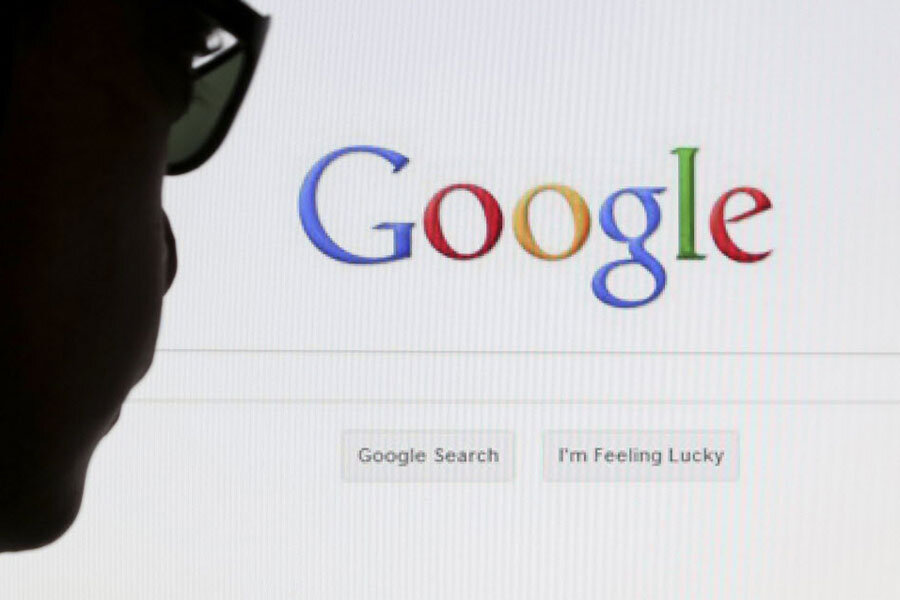Amid antitrust investigation, report accuses Google of rigging its searches
Loading...
Google has touted itself as the once and future king of search, but that doesn’t mean it’s free of controversy. A new report alleges that the company manipulates search results, improperly favoring its own services over accurate search data.
The report, led by crowdsourced review company Yelp and co-authored by Harvard Business School’s Michael Luca and “net neutrality” champion Tim Wu, analyzed Google search results for content displayed and click rates. It found that Google manipulated search results to prioritize the company’s own services, rather than information that might be more relevant to the user.
Google asserts that it doesn’t tamper with or manipulate search results, and instead leaves it up to its PageRank algorithm. The report, however, found that results would first display links to Google services, such as shopping, maps, and reviews, rather than those that may be more popular, such as Amazon or Yelp. For non-Google content, such as history, biographies, dates, and calculations, Google indexes an answer pulled from what it deems a reputable and popular source.
Because of the context, the Yelp researchers believe that Google is degrading some information to better sell its products.
These findings are published right as Google is facing European antitrust proceedings. The assumption for many has been that Google, as the largest Internet search company, is able to act as a “gatekeeper” to other services and products. Now that it offers consumer services of its own, many feel the company may be violating net neutrality practices – denying the open use and freedom of the Internet.
To Mr. Wu and the research team, Google is actively degrading the information it gives to consumers. Wu says this is “the closest I’ve seen Google come to the Microsoft case” in an interview with Re/code, referring to Microsoft’s bundling of Internet Explorer into Windows despite the prevalence of other, better Web browsers. With IE bundled into Windows, many critics felt that Microsoft was reducing consumer choice. When the ubiquitous operating system comes with a Web browser, other Web browsers are at an innate disadvantage. When one company holds the key to consumer technology, it can essentially play kingmaker with software. Eventually, the US government brought Microsoft to court in 2000, finding that the company violated antitrust regulation.
Recently, Google was brought to court over similar concerns. Though cleared in the United States, the company is now being met with antitrust regulations in Europe. If Google displays only its own services, what happens to its competition? Is that honest?
The report, titled “Is Google Degrading Search? Consumer Harm from Universal Search,” focused on “local intent” searches, or those focusing on information within the user’s immediate area. Instead of just searching for “Beyoncé Concerts,” users are more likely to search for “Beyoncé Concerts Boston” or whatever local region is most apt. Local intent searches account for more than a third of all Google searches.
While this report was only recently published, it should be noted that Yelp has been working on it for quite some time, with preliminary research documents leaked last year to TechCrunch.
Yelp also has faced accusations of data manipulation and the company has much to gain from the findings in this report. As the 35th most popular website in the United States, Yelp may appear at the top of search results if Google is forced to remove its own services’ banners from results.
Some have also raised concerns about the methodology behind Yelp’s study. ZDNet’s Larry Dignan notes that the study, which used A/B testing to measure user engagement, may have conflated user engagement as directly related to clicks. The report, however, did seek to discover whether users were more likely to click on content that used Google’s highlighted content versus those that did not, and found that they were. The researchers created a “heatmap” of where users clicked on each page, and found they were 45 percent more likely to click on a Google-owned service when the company’s large infoboxes were displayed.
“This suggests that by leveraging dominance in search to promote its internal content, Google is reducing social welfare – leaving consumers with lower quality results and worse matches,” the report says.
Despite the possible biases, the paper’s co-authors give it some heavy clout. Wu is a legal scholar and former advisor to the Federal Trade Commission, regularly lauded as the “father of net neutrality.” He says that, although Yelp paid him for his research, “I wouldn’t be doing this if I didn’t think this new evidence was a game-changer.”








